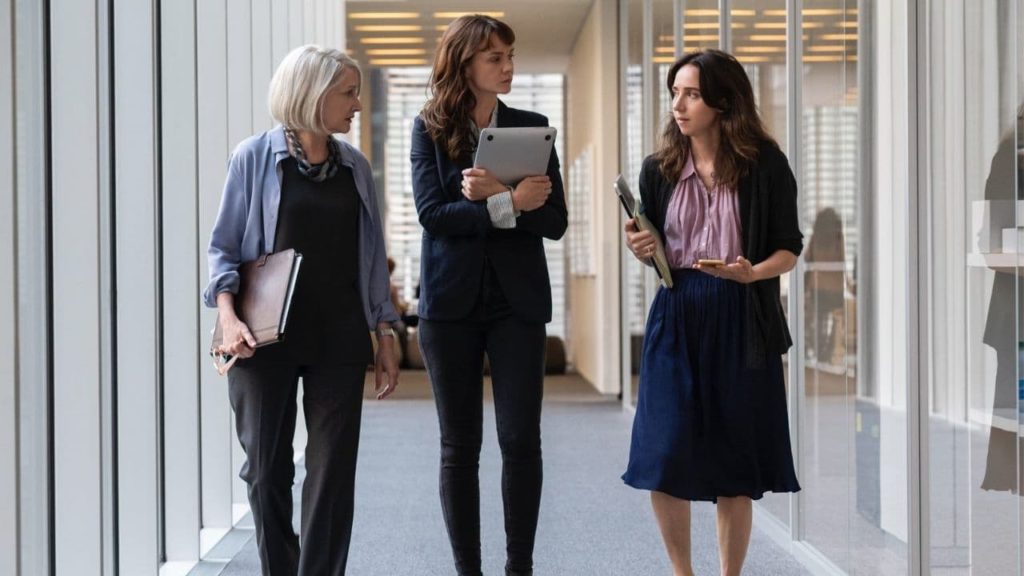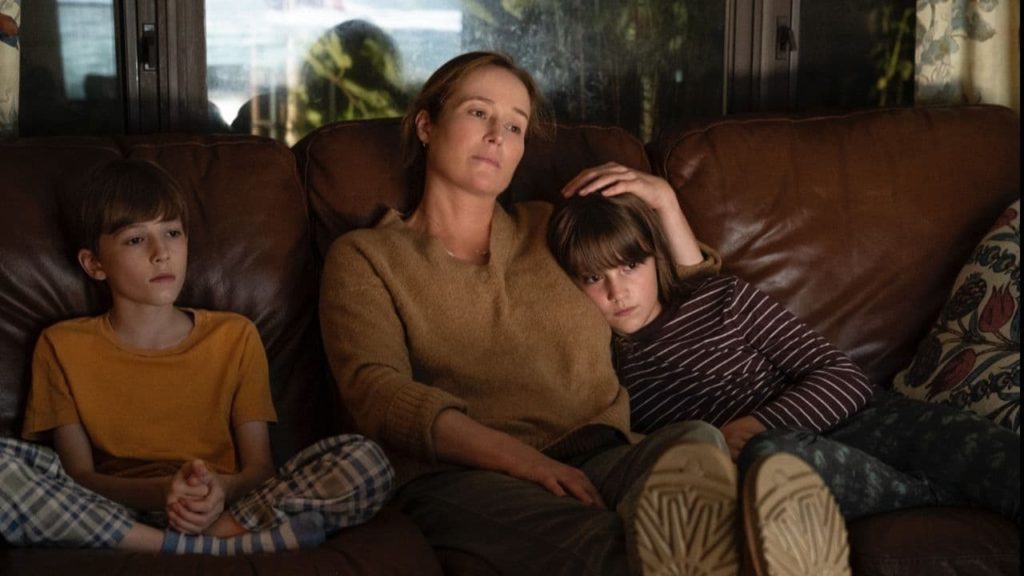"I know what it's like to be sad"
She Said is an “eat your veggies” movie. By which I mean it is an important movie about important issues — in this case, the journalistic investigation into Harvey Weinstein’s long history of abuse and cover-up as a leading movie executive.
This does not automatically make She Said good, nor does it automatically make She Said bad. Some vegetables, like my wife’s roasted sesame and garlic-glazed Brussels sprouts, are delicious. Others, like the soggy microwaved green beans I made last week, are depressing. There’s a qualitative spectrum, and She Said falls somewhere in the middle.
She Said has an agonizing opening, and I mean that in the bad way, not the good way. In the first couple scenes, we follow some New York Times reporters in their coverage of Donald Trump’s many scandals leading up to his election in 2016, and I spent this time thinking “kill me now.” Part of that is personal — I intentionally started watching more movies as a tactic for avoiding current events headlines — but it also feels like an artless and manipulative bit of intro. “Hey, the themes of this movie sure do echo across today’s headlines, huh?” It sets up the idea that there is inherent value in fighting the toxic patriarchy even when it seems futile, which becomes the movie’s main thesis, but damn is it nails on a chalkboard.

The rest of the early stretch is not much better as we tediously get to know our two protagonists in the early stage of their Weinstein investigation. Jodi Kantor (Zoe Kazan) and Megan Twohey (Carey Mulligan) are the key figures, and we get many scenes of them anxiously answering phones or confronting potential interview subjects.
The film’s rhythm is super janky. I’m not sure it has “acts.” The majority of the scenes are between 45 and 60 seconds long, a repetitive and exhausting flow. At least it mimics the nature of the story — two reporters hacking away avenues to break their story until the dominoes start to fall. But this pulse of scenes eventually pays off: once the story starts making headway, the movie’s tension ratchets up, and side plots (like Twohey’s postpartum depression) are forgotten. Then, the movie really cooks. There are stretches of this movie in its second half that are high-caliber journalistic thriller.
Of note are the flashback scenes as victims share their stories: Rather than witness the abuses themselves, we hear descriptions of them (and in one harrowing case, hear an audio recording), with the camera showing the setting of the abuse, empty of people, in drab colors and lighting. It prevents these scenes from feeling exploitative, yet they still end up deeply disturbing: There’s something sickly about the stillness and cleanliness of the settings of trauma in a state of calmness.

Alas, there’s a bit too much cruft for the movie to work overall. Like The Post before it, She Said is bound to the reality that the reporting of the story is significantly less dramatic and high-stakes than the story itself. There’s little to get us to care about or fear for the protagonists except that they’re played by actors we like. If they fail, their asses are not really on the line.
The performances are on average quite good, with the exception that Kazan is horribly miscast. She developed her acting chops in indie comedies, where I’ve often adored her: She has a malleable softness that can turn white-hot at moments, but not in a movie like this. Too much plot motion and stateliness are involved, when she thrives in films that let her breathe and build chemistry and be cute: Mulligan is a much better fit, and is quite excellent. Same with Patricia Clarkson and Andre Braugher as paper higher-ups. Braugher in particular gives a performance I love, showing a relaxed but obstinate strength as a beachhead for blowback against the story.
It’s not really possible to inject this type of material with a sense of fun or comedy or adventure, and She Said never tries even a little bit. It’s a little bit too rote and middlebrow, though far from the worst of this type of film. These cinematic veggies are decently made, but when that’s your entire meal, I’m not inclined to send my compliments to the chef.
- Review Series: 2022: Year in Film
Is It Good?
Nearly Good (4/8)
Dan is the founder and head critic of The Goods. Follow Dan on Letterboxd. Join the Discord for updates and discussion.

